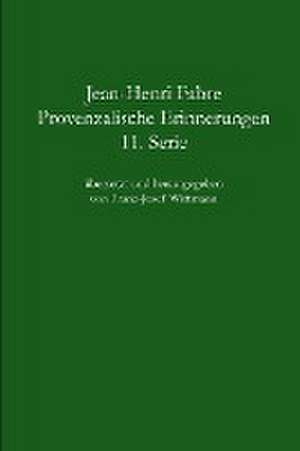Provenzalische Erinnerungen - 11. Serie
Autor Jean-Henri Fabrede Limba Germană Paperback – 8 ian 2016
Preț: 203.35 lei
Nou
Puncte Express: 305
Preț estimativ în valută:
38.92€ • 40.48$ • 32.62£
38.92€ • 40.48$ • 32.62£
Carte tipărită la comandă
Livrare economică 14-28 martie
Preluare comenzi: 021 569.72.76
Specificații
ISBN-13: 9781326341428
ISBN-10: 1326341421
Pagini: 220
Dimensiuni: 156 x 234 x 12 mm
Greutate: 0.31 kg
Editura: Lulu
ISBN-10: 1326341421
Pagini: 220
Dimensiuni: 156 x 234 x 12 mm
Greutate: 0.31 kg
Editura: Lulu
Notă biografică
French scientist, entomologist, and novelist Jean-Henri Casimir Fabre is renowned for the engaging tone of his best-selling books about insects. Fabre was born on December 21, 1823 in Saint-Léons, Aveyron, France. Due to his family's lack of resources, Fabre learned most things on his own. Fabre was a well-liked professor, botanist, physicist, and chemist. Though many regard him to be the founder of modern entomology, he is arguably best recognised for his discoveries in the discipline of entomology, the study of insects. His wonderful teaching skills and style of writing about insects' lives have contributed much to his ongoing appeal. Fabre wrote in an entertaining, conversational tone while combining what he called ""my quest for scientific truth"" with astute observations.
Charles Darwin, who referred to Fabre as ""an unequalled observer,"" was affected by him in his subsequent writings. Fabre was always wary of ideas and systems, therefore he maintained his scepticism regarding Darwin's theory of evolution. He arranged pine processionary caterpillars to make a continuous loop around the edge of a pot in one of his most well-known experiments.
On October 11, 1915, he died. Alexander Teixeira de Mattos' thorough translations of his work from 1912 to 1922 helped make him well-known in the English-speaking world.
